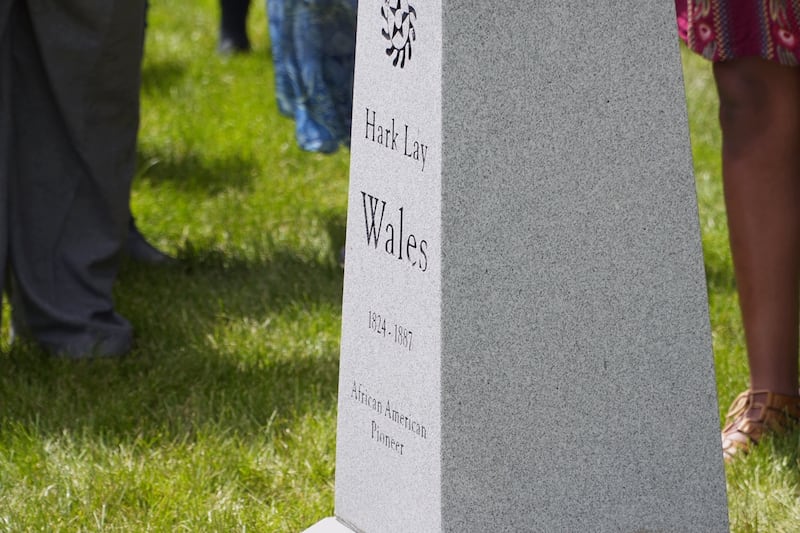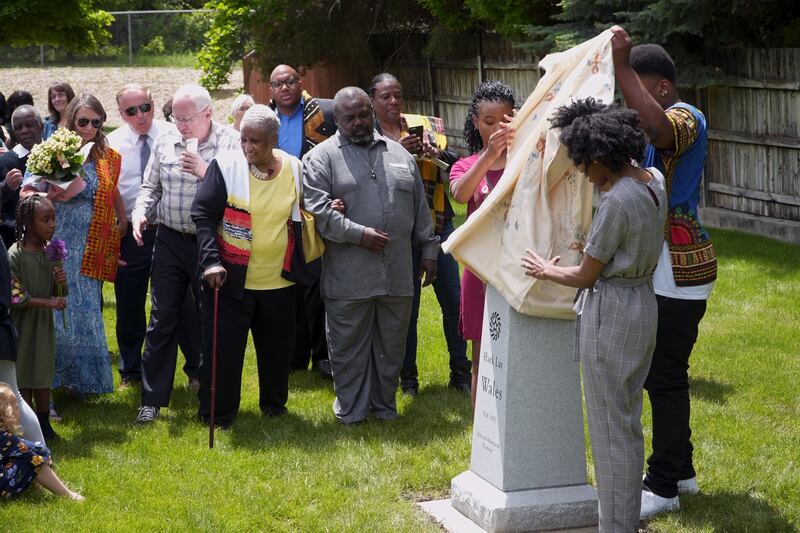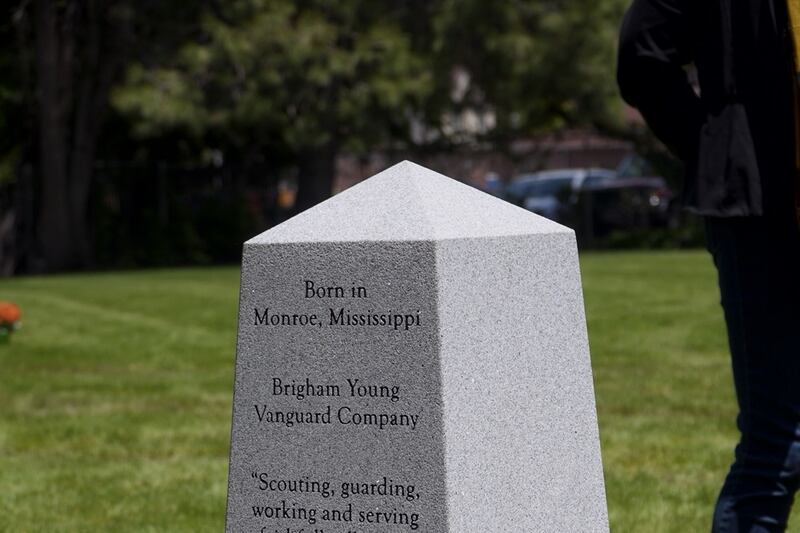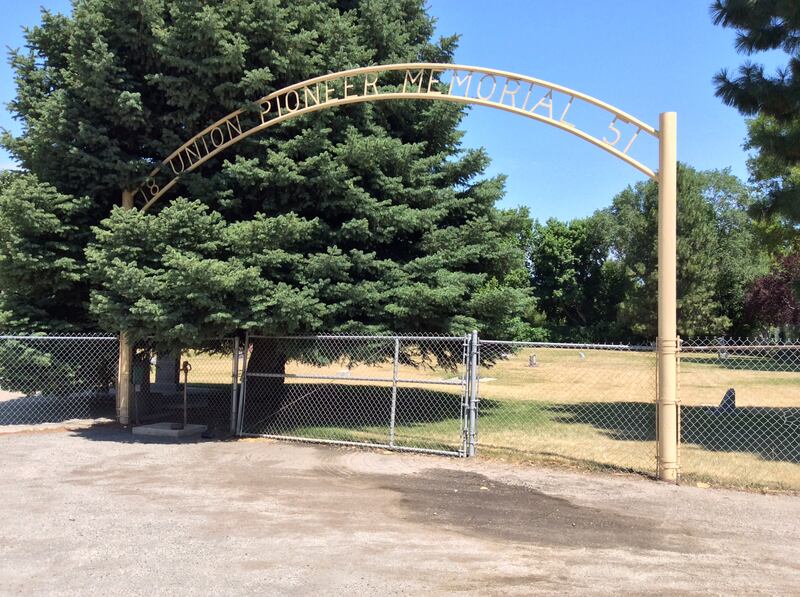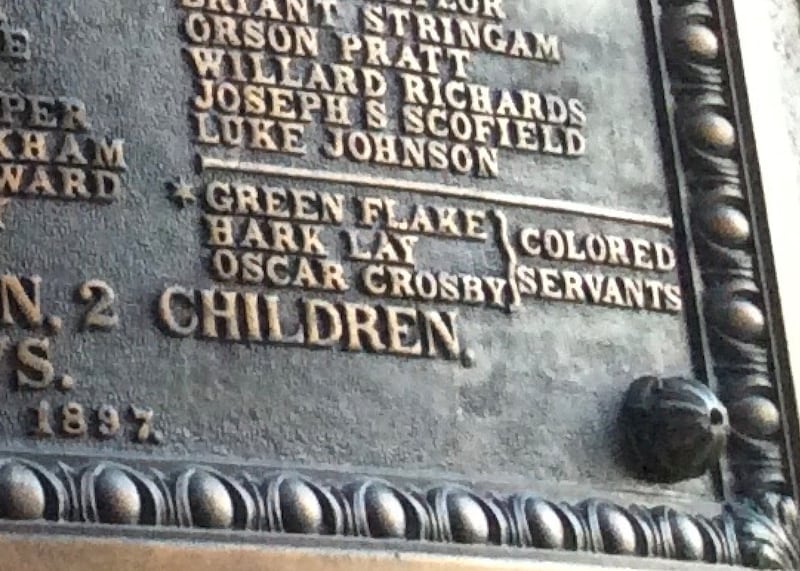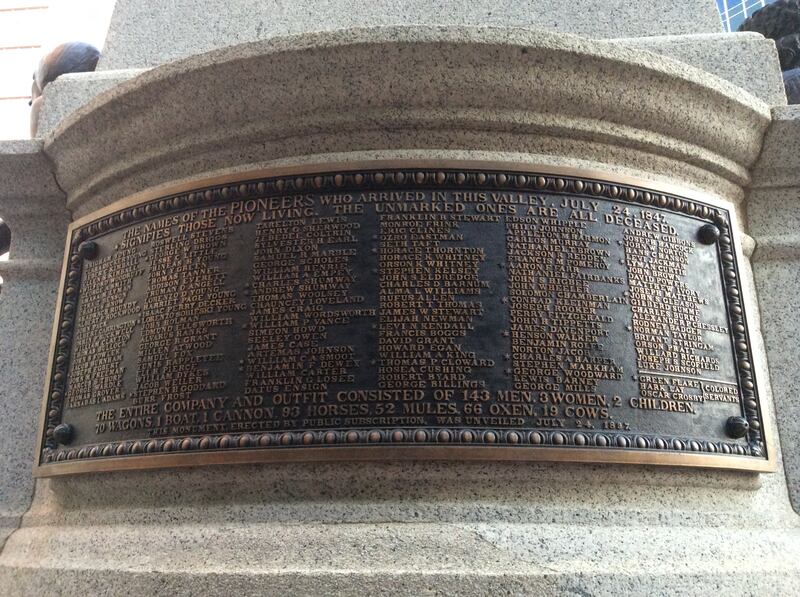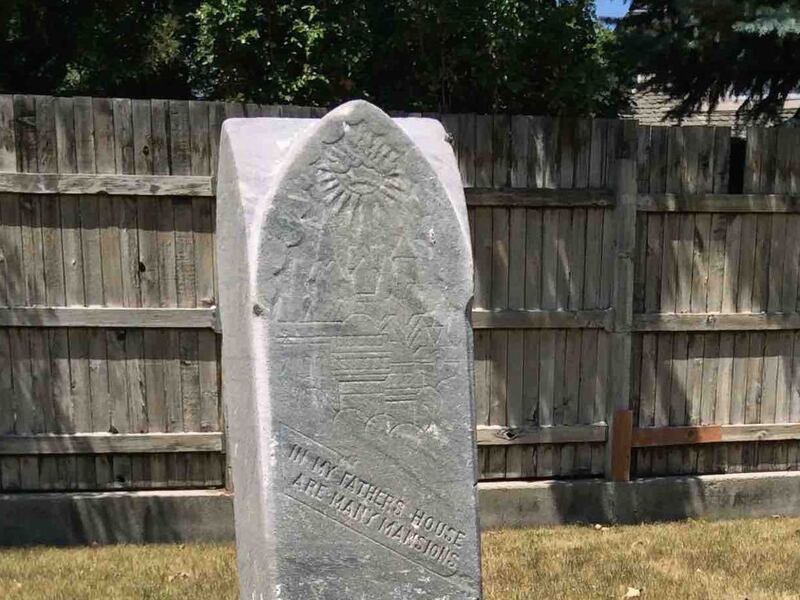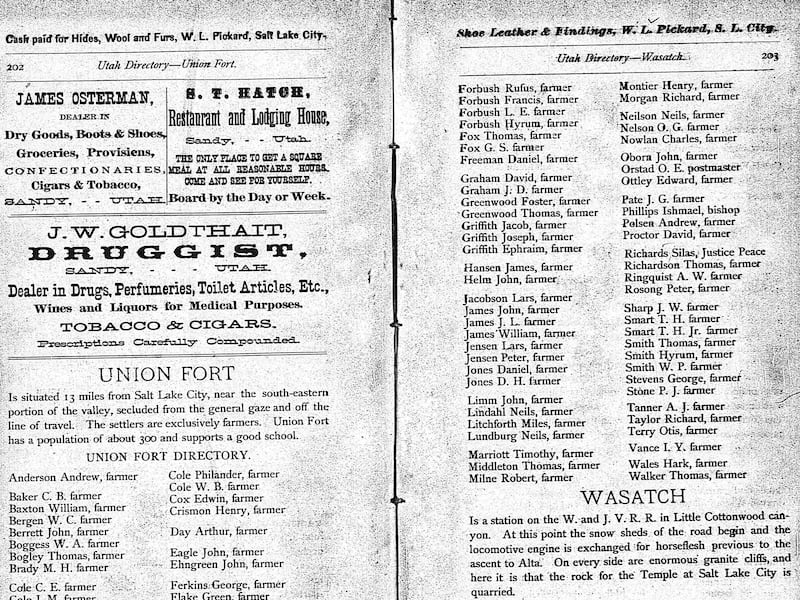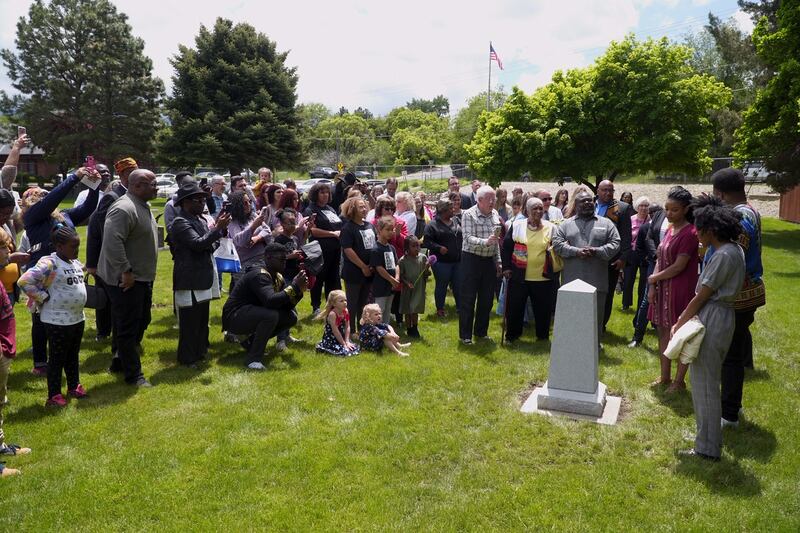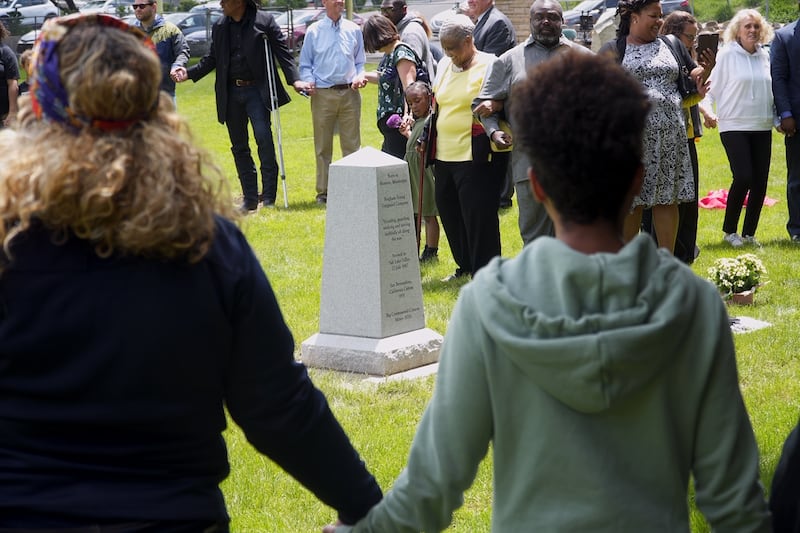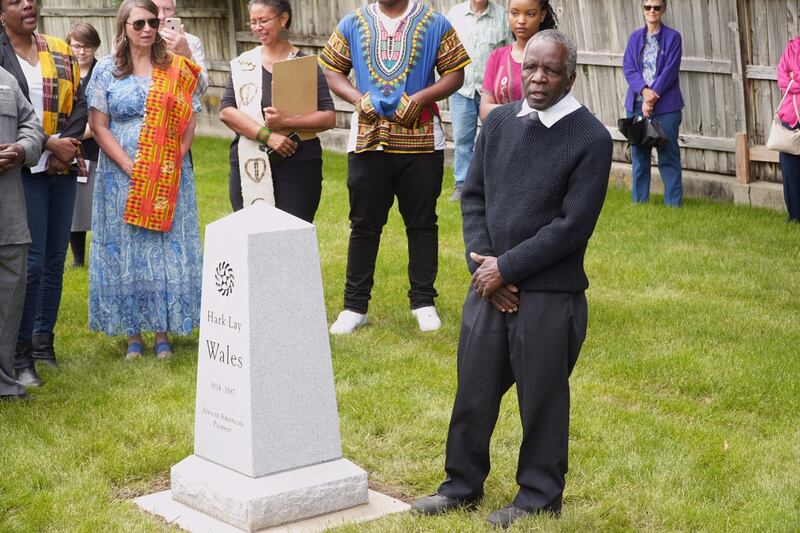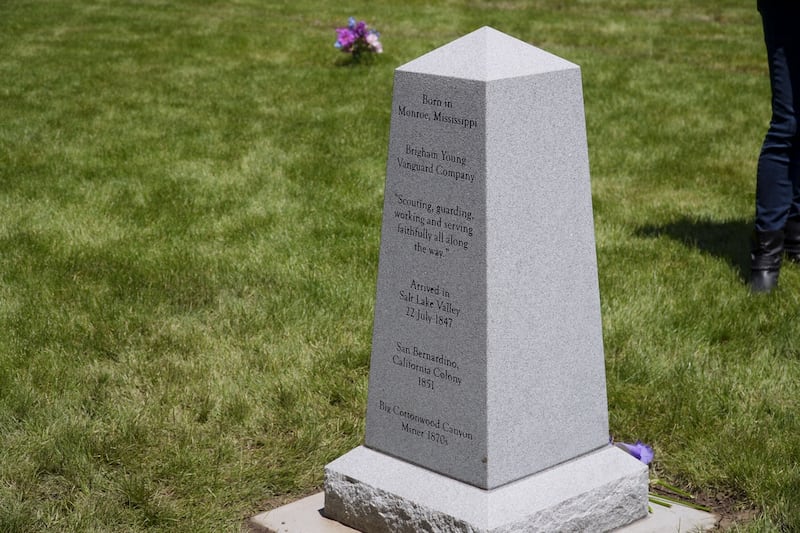COTTONWOOD HEIGHTS — Hark Lay Wales was one of three enslaved men to enter the Salt Lake Valley with the first Latter-day Saint pioneer company in July 1847. He died about 40 years later and until now, his grave was left unmarked.
A group of people gathered to place a gravestone in his name and honor his legacy at Union Cemetery on Memorial Day.
Remembering Wales this way has been a team effort, said Amy Tanner Thiriot, a historian who helped with the project.
"Hark Lay Wales was separated from his pregnant wife and son when his owners took him to California in 1851," Thiriot wrote in an email to the Deseret News. "Extensive research has suggested that he has no living descendants, so it’s been meaningful to work with Utah AAHGS, descendants of his owners, and many others to make sure his contributions to the success of the Latter-day Saint settlements in Salt Lake City and San Bernardino are not forgotten.”
Utah's African American community, including civic and religious leaders, members of the Utah branch of the Afro-American Historical and Genealogical Society (AAHGS), descendants of the Crosby-Lay family and others remembered Wales' life with speeches, music and the unveiling and dedication of his new grave marker.
Speakers included Pastor Marlin Lynch of the Kingdom Huddle; Jeffrey Thomas, Utah's first African American battalion fire chief; Rep. Sandra Hollins, D-Salt Lake City, Utah's first female African American legislator; David Hollins of Omega Psi Phi, a historic black fraternity; and Sheri Orton, a representative of the Crosby-Lay family.
Yahosh Bonner, who stars as Latter-day Saint African American pioneer Green Flake in an upcoming film, and others shared their musical talents at the event.
Robert S. Burch, president of the Utah AAHGS and Genesis Group Family History director, dedicated the grave.
Not only is this memorial is long overdue, but it serves to unify the community members past and present, said Alice Faulkner Burch, who conducted the program.
"This is an event that says we come together as community to recognize and remember all those who worked for the future that we are," Burch said. "I am honored to be part of doing this for Hark. He had a rough life; I understand rough. Hark has been forgotten all these decades. He is forgotten no more. Many persons have joined together in love and unity to make this happen."
Wales represents a bigger picture of slavery, Rep. Hollins said.
"I think we often forget that there were slaves in this state," she said. "For me he represent the many untold stories of slaves that were in this state, those people who were forgotten or never honored in graves that we will never know anything about. For me he represents a bigger picture of what was taking place during that time period. It's important to honor him with this headstone as a way to honor all of those slaves who were buried in unmarked graves and whose stories we may never know."
According to a life history written by Thiriot, Wales was born into slavery around 1824. His owner was John Crosby (1783-1840) of Monroe County, Mississippi. When Crosby died, Hark was one of three slaves he left for his daughter, Sytha Crosby.
Sytha Crosby, along with most of her family and some of their slaves, joined The Church of Jesus Christ of Latter-day Saints, although her husband, William Lay, did not.
The Lay family sent Hark and three other slaves ahead of the family to prepare a home in the west. Two of the slaves died of exposure to winter conditions along the way. Hark Wales and Oscar Crosby survived and arrived in the Salt Lake Valley on July 22, 1847.
Wales lived in the Salt Lake Valley for about four years before his owners took him to California, separating him from his pregnant wife Nancy and young son Howard Egan Wales.
In 1856, Wales learned he was free. He returned to Utah in the early 1870s and made his home in a small black community in Union Fort and mined in Big Cottonwood Canyon. Wales died in at some point in the 1880s and was buried in an unmarked grave in the Union Pioneer Cemetery, next to other African American Latter-day Saints like Green and Martha Flake and others.
The gravestone was placed in cooperation with the Daughters of the Utah Pioneers, the caretakers of the cemetery. A GoFundMe.com campaign was started to help pay for expenses.
Correction: An earlier version of this story incorrectly reported that Pastor Marlin Lynch conducted the program and that Tarienne Mitchell spoke. Alice Faulkner Burch conducted, Pastor Lynch gave remarks and Mitchell was not a speaker in the program.

